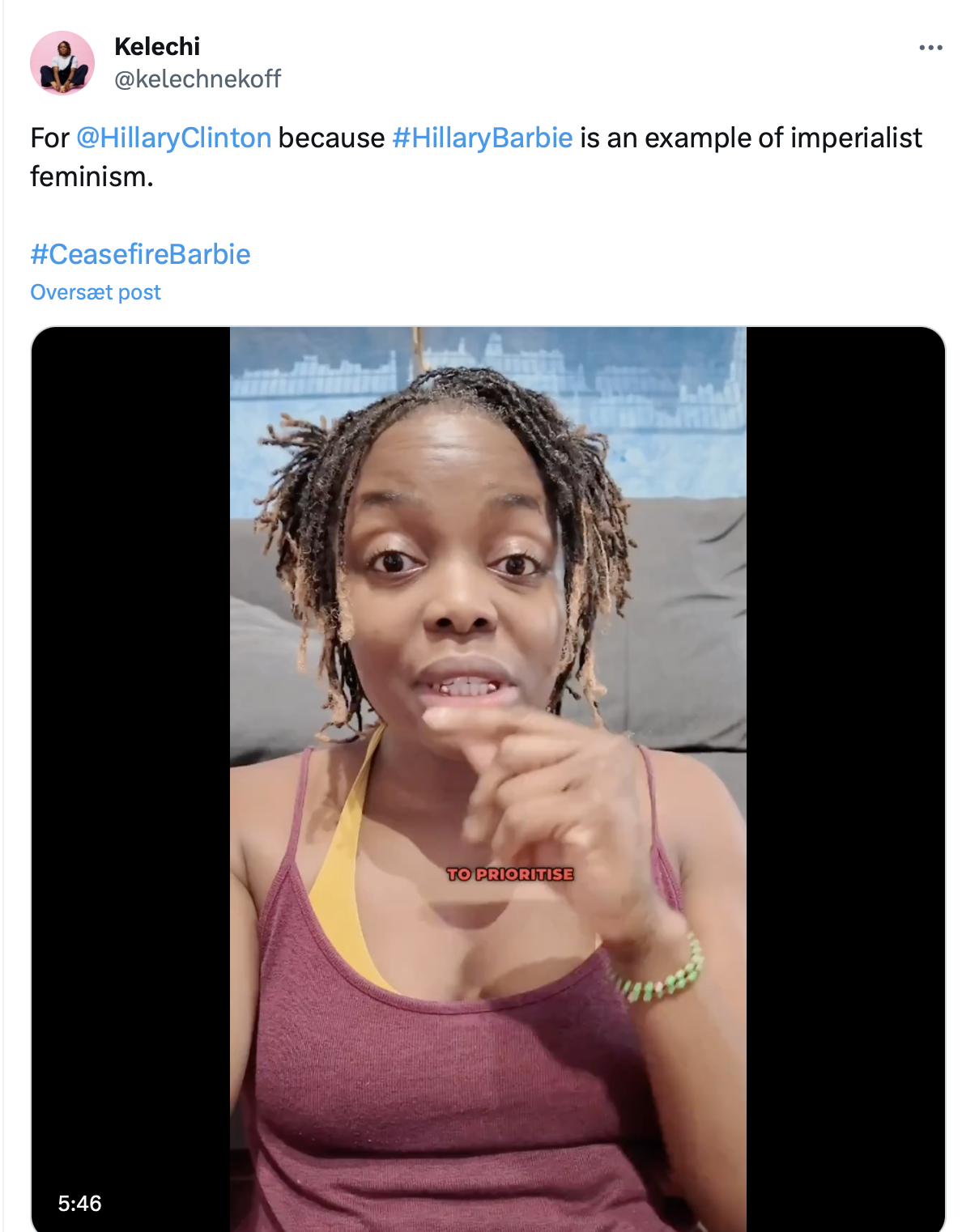#HillaryBarbie Vs. #ceasefirebarbie explained
As pro-Palestinian voices face censorship and shutdowns in the US, these voices are finding unity through memes. Currently, voices are uniting through memes.
#ceasefirebarbie emerges amidst a statement from the UN court that Israel must take "all measures" to prevent genocide in Gaza. As well as reports that Meta's content moderation policies and systems have been increasingly silencing voices in support of Palestine on platforms like Instagram and Facebook. This phenomenon was highlighted in a report released today by Human Rights Watch, titled "Meta’s Broken Promises: Systemic Censorship of Palestine Content on Instagram and Facebook," which spans 51 pages and delves into the issue
Hillary Clinton found herself in the midst of meme turmoil after sharing her thoughts on the Oscars snub of Margot Robbie and Greta Gerwig for their roles in the Barbie movie. On January 24th, Clinton expressed her solidarity with Robbie and Gerwig on Twitter, lamenting their lack of Oscar nominations for acting and directing, respectively. Her tweet read: "Greta & Margot, While it can sting to win the box office but not take home the gold, your millions of fans love you. You’re both so much more than Kenough," accompanied by the hashtag “HillaryBarbie.”
Initially met with nods of agreement, the tweet quickly spiraled into a whirlwind of criticism. The backlash spanned from mild embarrassment to outright calling Hillary Clinton to step back, centering on a perceived lack of situational awareness. Critics argued that in an era rife with significant global crises, especially concerning women's issues, Clinton's focus on the entertainment industry's award ceremonies seemed misplaced. Rebecca Alter, a journalist for Vulture, encapsulated the sentiment by remarking, "Considering Clinton’s silence on actual global crises women are currently facing, her decision to wade into Barbie’s viral moment is just very whatever the opposite of intersectional is."
The situation that evolved from Hillary Clinton's tweet quickly escalated into a storm of memes that parodied her and highlighted her silence on more serious global issues. Internet users were quick to point out what they perceived as a skewed prioritization of feminist issues, especially in addressing the humanitarian crisis in Gaza.“How does the world not just make you feel insane? The yt, western feminists are putting on their feminist hats to think piece this barbie situation. Miscarriages are up 300% in Gaza as we speak and 1000 women are raped in Congo every day. Fake feminists.” Og en anden:” @HillaryClinton because #HillaryBarbie is an example of imperialist feminism. #CeasefireBarbie
Clinton's attempt to engage with the massive Barbie wave seems like an ill-considered effort, one that might have been well-received in a pre-internet era. The year 2023 on TikTok was dubbed "the year of the girl," marked by trends and hashtag movements like #lazygirljobs, #girldinner, #hotgirlsummer, #tomatogirlsummers, and #hotgirlwalks. However, it appears Clinton's team may have misinterpreted the "girl trend" entirely. A characteristic of many of these TikTok trends is their underlying political layer—a form of activism. It's impossible to comment on the world without acknowledging one's stance and the relevance of current events. This is precisely why memes, as a format, are popular; they can encapsulate multiple layers. Misunderstanding the concept of positionality in political communication can lead to significant missteps.

